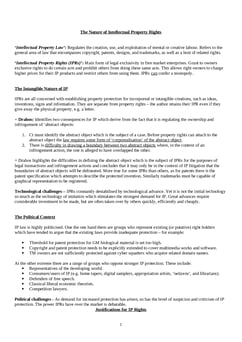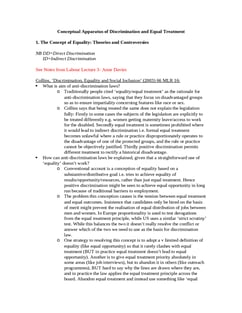Faccenda Chicken Ltd v Fowler [1987] Ch 117
Judgement for the case Faccenda Chicken Ltd v Fowler
Table Of Contents
KEY POINTS
In the misuse and disclosure of confidential information acquired during employment, the focus is always on allegations of breaching the duty of confidence, where current or former employees disclose proprietary information without proper authorization.
In the employer-employee relationship, inherent obligations and constraints onlook the relevance of skills and knowledge acquired during employment, particularly concerning the employer's business.
In the competitive marketing setup, customer knowledge is confidential and protected from disclosure by former employees, and the use of this knowledge breaches implied employment contract terms.
FACTS
The first defendant, a former sales manager for the plaintiffs, established a similar business after leaving his job. During their employment, salesmen gathered valuable sales information, including customer details and delivery logistics.
The plaintiffs alleged that these salesmen, now with the defendant's company, misused this information in violation of implied non-disclosure terms in their contracts. The defendant claimed unpaid commissions from the plaintiffs, who counterclaimed for damages due to the alleged misuse of confidential information.
The court categorized employee-acquired information into three types, with sales information falling into the second category of confidential data. As no contract terms explicitly prohibited its use post-employment, the judge ruled in favor of the defendant, dismissing the plaintiffs' claims.
The plaintiffs subsequently appealed the case.
JUDGEMENT
The appeal was dismissed. The court held that in the absence of express terms in the employment contracts, employees were bound by an implied duty of good faith to their employers. This duty prohibited employees from using or disclosing confidential information obtained during employment.
An implied term in the employment contract prohibits employees from using or disclosing information that is not merely confidential but could be classified as a trade secret. However, the court clarified that no term should be implied that obligates employees to refrain from using or disclosing confidential information, short of a trade secret after their employment has ceased.
The court held in this case neither the sales information nor the information regarding prices qualified as trade secrets. The employees were entitled to use and disclose this information once they had terminated their employment with the plaintiffs. The appeal was therefore dismissed based on these grounds.
COMMENTARY
This case is an illustration of the misuse of confidential information within the employment context. The first defendant, formerly a sales manager for the plaintiffs, ventured into a similar business after leaving his role, sparking allegations of misusing information obtained during his employment.
During their time with the plaintiffs, salesmen acquired valuable sales data, including customer details and delivery logistics. The plaintiffs alleged that these salesmen, now working for the defendant, had misused this information, potentially breaching implied non-disclosure terms in their employment contracts.
The defendant also claimed unpaid commissions from the plaintiffs, who countered with claims of damages, citing the alleged misuse of confidential information. The court categorized employee-acquired information, placing sales data in the second category of confidential information.
A pivotal factor in the case was the absence of explicit contract terms barring the post-employment use of confidential information. The judge favored the defendant, dismissing the plaintiffs' claims.
The court clarified the implied contractual terms that bound employees to a duty of good faith toward their employers, encompassing the prohibition of using or disclosing confidential information acquired during their employment.
The court defined an implied term in the employment contract, restricting employees from using or disclosing information that didn't merely fall under the category of confidential but could be deemed a trade secret. This distinction shed light on the extent of employees' obligations after their employment had ended.
The court determined that neither the sales information nor the pricing data met the criteria for being classified as trade secrets. The employees were permitted to use and disclose this information post-employment.
The appeal was ultimately dismissed, underscoring the significance of explicit contractual terms in safeguarding confidential information in the workplace.
ORIGINAL ANALYSIS
Claimant operated business of rearing, killing and selling fresh chickens. Defendant was sales manager for Claimant, but left to start up his own business selling fresh chickens in same area. Several of Claimant’s employees left to join Defendant.
Claimant sued Defendant alleging breach of confidence, in that Defendant had used sales information gained during his employment with Defendant – i.e. contact details of customers, prices Claimant charged etc.
Held
Four factors relevant to showing implied obligation (see notes)
On facts, was no breach of duty of fidelity
-
None of information could be regarded as secret:
Defendant had been required to remember the information to carry out his job as Claimant’s sales director
Information was generally known amongst all staff, and not restricted to inner circle
Was no indication by Claimant that information was confidential
For Further Study on Faccenda Chicken Ltd v Fowler

IP law notes fully updated for recent exams at Oxford and Cambridge....
Need instant answers? Our AI exam tutor is here to help.
Ask questions 🙋 Get answers 📔 It's simple 👁️👄👁️
Our AI is educated by the highest scoring students across all subjects and schools. Join hundreds of your peers today.
Get StartedSimilar Cases
Related Product Samples
These product samples contain the same concepts we cover in this case.


